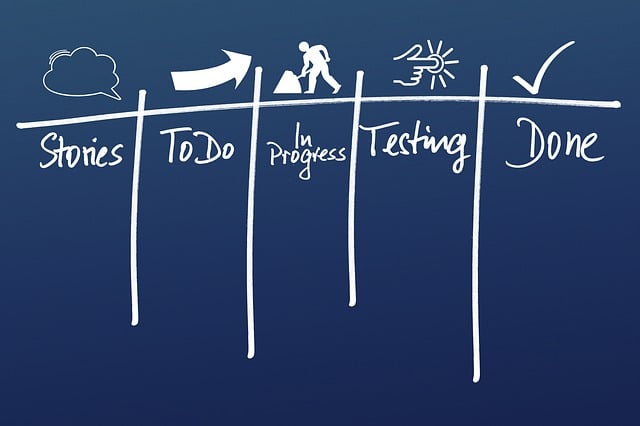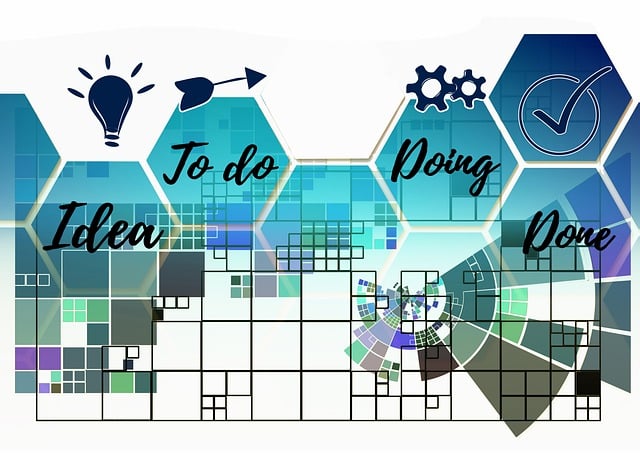AI agents for business growth revolutionize operations by automating complex tasks, driving productivity, cost reduction, and error minimization. They offer versatility in processes like financial transactions, inventory management, and legal procedures, enhancing efficiency and strategic decision-making. Implementing AI involves identifying repetitive tasks, leveraging tools like NLP and Machine Learning, designing an efficient AI funnel, and tracking KPIs to measure success. Embracing AI early provides competitive advantages, positioning companies for sustained growth in the digital age.
In today’s digital era, AI agents are transforming complex business processes, revolutionizing operations, and fostering unprecedented growth. This article delves into the potential of these intelligent assistants, exploring how they can automate tasks, enhance efficiency, and drive strategic outcomes. From understanding core capabilities to implementing effective strategies, we’ll navigate identifying suitable processes for automation and measuring success. Discover future growth opportunities as AI continues to reshape the business landscape.
- Understanding AI Agents and Their Potential
- Identifying Business Processes for Automation
- Implementing AI: Strategies and Tools
- Measuring Success and Future Growth Opportunities
Understanding AI Agents and Their Potential

AI Agents represent a paradigm shift in how businesses operate, offering immense potential for growth and efficiency. These intelligent software systems are designed to mimic human decision-making processes, learning from data and improving over time. By automating complex tasks, AI Agents can significantly enhance productivity, reduce costs, and minimize errors across various industries.
For instance, AI agents can revolutionize chatbot marketing by providing 24/7 customer support, processing queries, and offering personalized product recommendations. They can analyze vast amounts of customer data to gain valuable insights, enabling businesses to tailor their strategies for maximum impact. The versatility of AI agents is profound, from streamlining financial transactions and managing inventory to facilitating complex legal processes, thereby driving business growth in unprecedented ways.
Identifying Business Processes for Automation

Identifying which business processes to automate is a strategic step that involves careful analysis and an understanding of the organization’s goals. AI agents can revolutionize various sectors, from manufacturing to customer service, by streamlining repetitive tasks and enhancing efficiency. For instance, in e-commerce automation, AI agents can optimize inventory management, predict customer behavior, and personalize marketing strategies, thereby driving business growth.
By evaluating existing workflows, businesses can pinpoint areas where manual intervention is time-consuming or prone to errors. An effective approach involves assessing the potential impact on various stakeholders, considering both short-term gains and long-term strategic benefits. This process ensures that AI agents are implemented in a way that aligns with overall business objectives, leading to increased productivity and competitiveness in today’s fast-paced market.
Implementing AI: Strategies and Tools

Implementing AI for business growth requires a strategic approach, leveraging tools tailored to specific process needs. The first step is identifying repetitive, time-consuming tasks suitable for automation. Once these are pinpointed, businesses can turn to various AI agents designed to streamline operations. Natural Language Processing (NLP) powered ai assistants excel at handling customer inquiries and data extraction from documents, while Machine Learning algorithms can optimize inventory management and sales forecasting.
To harness the full potential of AI in business processes, companies should consider a multi-stage approach. This involves designing an efficient AI funnel: first, collecting and preparing relevant data, then selecting appropriate AI models for training based on defined objectives. By combining these strategies with robust tools, businesses can effectively deploy AI agents to enhance productivity, reduce errors, and ultimately drive growth.
Measuring Success and Future Growth Opportunities

Measuring the success of AI agents in automating complex business processes is paramount to understanding their true value and potential for driving business growth. Key performance indicators (KPIs) should encompass both operational efficiencies, such as reduced processing times and cost savings, and qualitative metrics like improved customer satisfaction and employee productivity. By tracking these KPIs, organizations can quantitatively assess the impact of AI agents on their bottom line and make informed decisions about future implementation.
Looking ahead, the future growth opportunities for AI agents in business are immense. As technology advances and AI chatbots become more sophisticated, they will continue to play a pivotal role in streamlining operations across various industries. From enhancing customer service through 24/7 chatbot marketing to automating back-office tasks like data entry and invoice processing, AI agents have the potential to revolutionize how businesses function. Embracing this shift early on can provide significant competitive advantages, setting companies up for sustained growth and success in the digital age.
AI agents are transforming complex business processes, offering significant opportunities for growth. By understanding their potential, identifying suitable automation candidates, and implementing effective strategies, businesses can leverage AI for increased efficiency, reduced costs, and improved decision-making. Measuring success involves tracking key performance indicators (KPIs) and continuously refining automation efforts. As AI continues to evolve, embracing these technologies will be vital for staying competitive in the digital age, driving business growth, and adapting to market demands.
